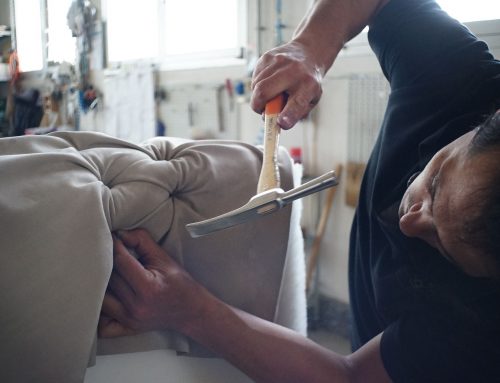How do we create better habits for ourselves and the planet? Catch up on highlights from the guardian’s expert and reader debate.
1.Saying “be more sustainable” is not effective.
“We’re not as rational as we would like to think. More information is not the answer” opened GreeNudge and CICERO’s Steffen Kallbekken. Unilever’s Richard L Wright added “Successful communication requires a very high level of engagement – making it expensive. We need cleverer, more cost-effective ways to engage people.” To illustrate this, Sainsbury’s Sarah Ellis reminded us: “Customers can spend as little as 6 seconds making a decision at the shelf.”
2.Without planning for context, long-term change is tough.
The environment we make our decisions in is key to creating sustained change, Carl Hughes at the Wales Centre for Behavioural Change, explained: “We have to identify behaviours we’d like to see, then arrange rewarding environments – or disincentives for undesirable behaviours… If it’s not practical to make permanent changes to the environment, or if the effects wear off as we habituate to their presence in our environment, then we may not see long term impact.” Which is why environmental context can weaken ‘nudges’ over time.
3.Social norms are a powerful tool.
Arizona State University’s Michelle Shiota illustrated the power of social norms with a great study, in which hotel towel reuse increased by 36% when a card stating “most people” reuse was used rather than one describing the environmental benefits. Mike Daniels, of The Behavioural Architects agreed that in areas including public transport and waste, they find “the social norms card is one of the very first we explore playing in any behaviour change context” (We also saw social norms come into effect amongst the panel when asked about their shower habits!)
4.Social norm changes are often incremental.
“For example, the environmental impact of carrier bag charging is in many ways debatable. However, the change pushes reuse and environmental impact to front of mind, raises awareness and reminds at every checkout. This wider impact and the creation of a new social norm have yet to be quantified but achievable change in incremental steps is crucial.” (Carl Hughes)
The recent UK increase of five to seven recommended portions of fruit and veg daily provided another illustration from DivaCreative: “People need at least seven portions, but there was an understanding that this would be unachievable by most. It therefore made sense to encourage five on the basis that this would have a positive, albeit lesser effect.”
5.Social norms work because they can trigger value-change.
You can achieve quick behaviour change without value-change – in fact it’s easier, in the case of nudges. But if you want long-term behaviour change, it should align with values. Steffen Kallbekken illustrated values further by touching on the rebound effect, but one of the main statements (which the righter of the current post finds totally right) was:
If the motivation is extrinsic (eg: monetary) the change is unlikely to be sustained once the incentive’s removed, and also unlikely to be transferred to other domains of behaviour. If the motivation is intrinsic (eg: value-based) the behavioural change is much more likely to be sustained over time
6.There’s a difference between what we say and what we do.
“Explicit pro-environment and sustainability attitudes have little predictive value in terms of behaviour. This is not specific to sustainability – our habits, impulses, and desire for comfort and convenience have trouble competing with even our best intentions and dearly held beliefs.” (Michelle Shiota).
The panel all acknowledged the “value-action gap”: “There is a broad societal desire to become more sustainable, less wasteful and more efficient, however there are barriers to this becoming a reality. First, not everyone shares these desires. Second, those who do, may not actually behave in accordance with these desires – the Value-Action gap.” (Carl Hughes).
As our poll into the sustainability action you find hardest showed, many of us struggle to shorten showers, eat less meat, or as commenter Leonie summed up:
When faced with a £30 two hour flight or a £100 six hour train, I will often fly even though I know I shouldn’t. And that probably offsets everything else ‘good’ that I do.
7.No-one knows how long habits take to form.
Hermione Taylor discussed theories from the “21 day rule” to “doing something 66 times”. And commenter Ruth contributed health sector thinking: 65 days for eating habits and 91 days for exercise. “In reality it varies, some things stick after you’ve done them twice, because they just make sense (less water in your kettle), others take more persistence (smoking). At The DoNation, all pledges are set to two months, if users succeed, 81% of them continue for the long term.” (Hermione Taylor).
8.We should explore “life transition moments”
New work from Surrey University’s Sustainable Lifestyles Research Group looks at the scope for household behaviour change facilitation at “moments of transition”, eg house-moves, retirement or starting a family. Carl Hughes agreed these moments “represent an opportunity to plan differently, break old habits, and develop new ones”. As did Steffen Kallbekken, “use these moments to overcome the fact that change is difficult because of habits – the choices you make every single day without thinking of them as choices”. Although panelists cautioned on the high-stress of these transitions.
9.We should leverage our instinct for play.
“When we’re stressed or happy we’re more likely to fall back on old behaviours,” said Michelle Shiota. As part of a cocktail of approaches, she described: “…leveraging the natural human motives to play, compete, test ourselves, earn rewards, and take care of our loved ones.”



![Building trust: why consumers should shift towards environmentally friendly corporations [7min. reading time]](https://www.habits.ninja/wp-content/uploads/environmental-awareness-679668_640-500x383.jpg)













